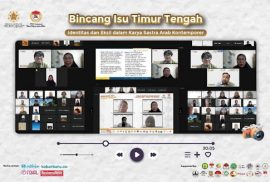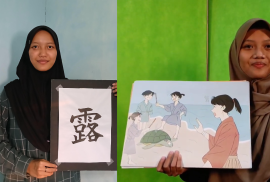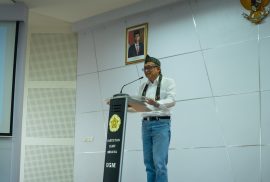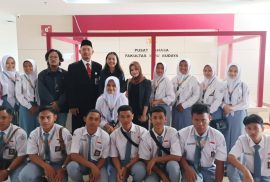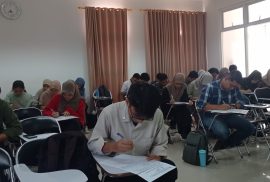The Association of Middle Eastern Cultural Studies Students at UGM (IMABTA UGM) and the Indonesian Student Association for the Middle East and Africa (PPIDK Timtengka) collaborated in organizing the event “Middle Eastern Issues Discussion” with the theme “Identity and Exile in Contemporary Arabic Literature”. This event was held on Thursday, June 7, 2024, in a hybrid format. The Middle Eastern Issues Discussion featured Middle Eastern Cultural Analyst and Gadjah Mada University Lecturer Dr. Hindun, M.Hum., Head of the Intercultural Department Prof. Dr. Sangidu, M.Hum., and Secretary of the Intercultural Department UGM Dr. Mahmudah, M.Hum. Participants in this event included students from Indonesia as well as countries in the Middle East, including Egypt, Jordan, and South Africa.
Dr. Hindun explained that literature is shaped by the mindset of the society around it. One example is the literature written by Mahmoud Darwish. Darwish wrote about the condition of Palestine when it was occupied by Israel. In addition, this Arabic Literature Lecturer provided another example from Khalil Gibran’s work titled “Al-Ajnihah Al-Mutakassirah”. In it, Gibran narrates the events he experienced in his homeland with a distinctive language style, allowing readers to feel what he experienced. From these examples, it is evident that literature can showcase the identity and exile of the author. Literature can serve as a medium or window to view various social issues occurring in the Middle East.

